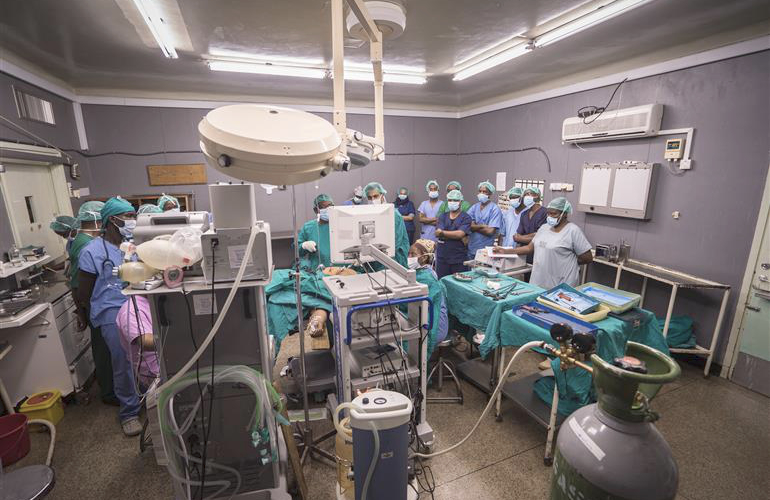At the UN General Assembly last week governments committed to landmark agreement on Universal Health Coverage, pledging to help all people access health services. The commitment came in the form of a political statement on UHC which included reference to building essential surgery capacities as a means to reach the sustainable development goals.
The commitment was the product of the first UN High-level Meeting on Universal Health Coverage held in New York on 23 September.
Opening the meeting, General Assembly President Tijjani Muhammad-Bande emphasised that access to critical health services “must be a universal right and not a privilege”.
“We must ensure that nations around the world can benefit from each other in medical training, provision of medical infrastructure, among others, if we are to achieve our agreed SDGs (Sustainable Development Goals)”.
Mr. Muhammad-Bande said the objective of UHC is to “strengthen our health systems” to guarantee a “healthier life for everyone” by ensuring that people have access to “affordable, preventive, curative and rehabilitative health services”.
To realise quality health services the President called on member states to support each other with “integrated, efficient, safe and people-centred care”.
Patient care is a core component of anaesthesiology. Anaesthesiologists have a particular focus on quality of care, safety of perioperative care and the impact on patient outcomes. In May 2018, the WHO-WFSA International Standards for a Safe Practice of Anaesthesia was published, providing guidance and assistance to anaesthesia providers, anaesthesia national societies and other professional organizations, hospital and facility administrators, and governments for maintaining and improving the quality and safety of anaesthesia care.
The World Federation of Societies of Anaesthesiologists (WFSA) were invited to the UNGA in its capacity as official liaison with the World Health Organisation. Representing WFSA at the High Level Meeting was Dr Gunisha Kaur, Assistant Professor of Anaesthesiology at Weill Cornell Medical College.
‘It is vital that expert-led organisations such as the WFSA are at the forefront of efforts to inform approaches seeking to ensure access to safe and affordable health care.
Dr Kaur continued, ‘It’s exciting that WHO’s commitment to the WHA Resolution 68.15 calling for the strengthening of essential surgical care and anaesthesia as a component of UHC, was so clearly echoed in the political declaration which came out of this meeting.”
That said 5 billion people still don’t have access to safe, timely affordable anaesthesia and surgery, so more needs to be done.”
To mark the High Level Meeting a special side event focusing on child health, surgical care and UHC was co-hosted by Smile Train and the G4 Alliance, two organisations – like WFSA -committed to promoting access to safe surgery and anaesthesia worldwide.






